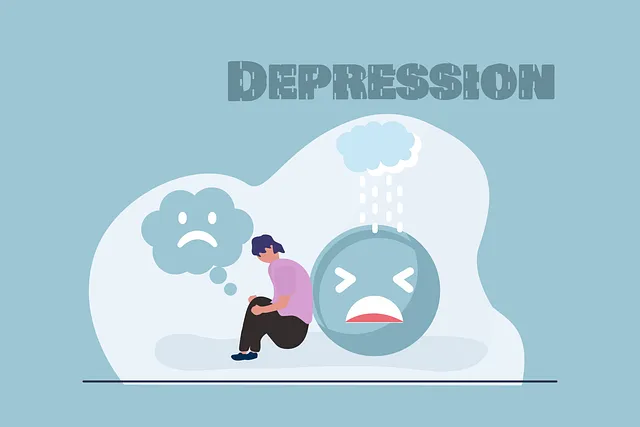The Kaiser Permanente mental health center in Wheat Ridge places strong emphasis on risk assessment and management through comprehensive, multi-faceted approaches. Healthcare providers conduct thorough evaluations of patients' psychological profiles, histories, and current situations to identify risks accurately. This process equips individuals with stress management tools, builds resilience, and encourages healthy self-care practices, aligning with Mind Over Matter principles. Kaiser Permanente Wheat Ridge employs regular supervision, peer support, educational resources, and clear self-care guidelines, along with emotional intelligence training for staff and Stress Management Workshops, to create a supportive environment that enhances patient care and promotes the well-being of both patients and professionals.
Mental health professionals face unique risks in their daily practice, demanding comprehensive risk assessment and management. This article explores these critical aspects within the context of Kaiser Permanente’s approach at its Wheat Ridge mental health center. We delve into understanding risk assessment, identifying and mitigating risks specific to mental health practitioners, and examining effective risk management strategies employed by community-based centers. By adhering to these practices, healthcare providers can ensure safer working environments, enhance patient care, and foster resilient professional landscapes.
- Understanding Risk Assessment in Mental Health Practice at Kaiser Permanente Wheat Ridge
- Identifying and Mitigating Risks for Mental Health Professionals
- Strategies for Effective Risk Management at a Community-Based Center
Understanding Risk Assessment in Mental Health Practice at Kaiser Permanente Wheat Ridge

At Kaiser Permanente Wheat Ridge, mental health professionals are well-versed in the art of risk assessment, a critical component of delivering quality care to their patients. This involves a comprehensive evaluation process that considers various factors unique to each individual’s psychological landscape. By delving into a patient’s history, current circumstances, and potential triggers, healthcare providers at this renowned Kaiser Permanente mental health center Wheat Ridge can identify risks accurately.
Risk assessment here is not just about identifying vulnerabilities but also equipping individuals with the tools for stress management, fostering resilience, and promoting healthy self-care practices, in line with Mind Over Matter Principles. The Stress Management Workshops Organization, a partner to Kaiser Permanente, plays a pivotal role in enhancing these capabilities through interactive sessions. This collaborative approach ensures that patients leave not just treated but empowered to navigate their mental health journeys effectively.
Identifying and Mitigating Risks for Mental Health Professionals

Identifying and mitigating risks is a crucial aspect of professional practice for mental health professionals at Kaiser Permanente mental health center Wheat Ridge. Effective risk assessment involves a comprehensive evaluation of various factors that could impact an individual’s well-being and ability to provide quality care. This includes identifying stressors, such as heavy caseloads, complex patient cases, or work-life balance issues, which can contribute to burnout and decreased resilience.
Implementing robust risk management planning is essential to fostering a supportive environment. Strategies may include regular supervision sessions, peer support networks, access to Mental Wellness Podcast Series Production for ongoing professional development, and clear guidelines for self-care practices. By prioritizing mental wellness and incorporating these proactive measures, mental health professionals at Kaiser Permanente Wheat Ridge can effectively navigate challenges, ensuring optimal patient care and personal well-being.
Strategies for Effective Risk Management at a Community-Based Center

At the Kaiser Permanente mental health center in Wheat Ridge, effective risk management strategies are implemented to ensure a safe and supportive environment for both patients and professionals. This includes comprehensive training programs focused on enhancing emotional intelligence among staff, as it plays a pivotal role in identifying and mitigating potential risks. By fostering strong interpersonal connections and self-awareness, the center’s workforce is better equipped to anticipate and address issues before they escalate.
Additionally, the center organizes regular Stress Management Workshops to empower mental health professionals with practical tools for coping with workplace demands. These workshops not only promote individual wellness but also contribute to a healthier organizational culture. By prioritizing both the mental and emotional well-being of its employees, Kaiser Permanente Wheat Ridge aims to create a resilient and supportive ecosystem that benefits everyone involved, ultimately enhancing service quality within the community.
Risk assessment is an indispensable tool for Kaiser Permanente mental health centers like Wheat Ridge to ensure safe and effective practice. By understanding unique risks, identifying vulnerabilities, and implementing robust mitigation strategies, mental health professionals can create a supportive environment that fosters both patient well-being and personal resilience. Effective risk management not only protects practitioners but also enhances the quality of care provided at these community-based centers.






